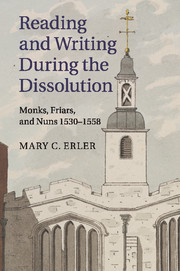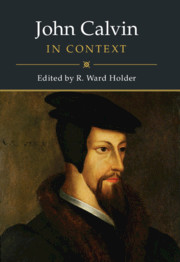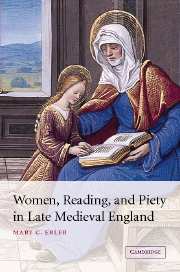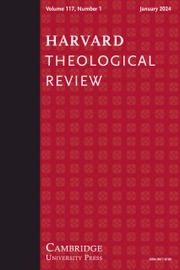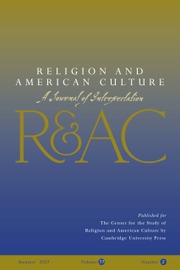Reading and Writing during the Dissolution
In the years from 1534, when Henry VIII became head of the English church until the end of Mary Tudor's reign in 1558, the forms of English religious life evolved quickly and in complex ways. At the heart of these changes stood the country's professed religious men and women, whose institutional homes were closed between 1535 and 1540. Records of their reading and writing offer a remarkable view of these turbulent times. The responses to religious change of friars, anchorites, monks and nuns from London and the surrounding regions are shown through chronicles, devotional texts, and letters. What becomes apparent is the variety of positions that English religious men and women took up at the Reformation and the accommodations that they reached, both spiritual and practical. Of particular interest are the extraordinary letters of Margaret Vernon, head of four nunneries and personal friend of Thomas Cromwell.
- Presents richly detailed biographies of English monks, friars and nuns, examining their reading and writing
- Offers a fascinating look at the human complexities produced by the Dissolution
- Shows the continuities, as well as the ruptures, in the shift away from traditional social and religious forms
Reviews & endorsements
'Mary C. Erler's elegant examination of monastic reading and writing during the Dissolution revolves around six case studies representing different facets of religious life in early Tudor England. By drawing attention to their reading and especially their writing in the midst and aftermath of the Dissolution, Erler offers a more rounded picture of the regular clergy - as active participants in the English Reformation.' Martin Heale, The American Historical Review
Product details
January 2016Paperback
9781316601938
216 pages
229 × 152 × 11 mm
0.3kg
5 b/w illus. 1 map
Available
Table of Contents
- 1. Looking backward?: London's last anchorite, Simon Appulby (†1537)
- 2. The Greyfriars Chronicle and the fate of London's Franciscan community
- 3. Cromwell's nuns: Katherine Bulkeley, Morpheta Kingsmill, Joan Fane
- 4. Cromwell's abbess and friend, Margaret Vernon
- 5. 'Refugee Reformation': the effects of exile
- 6. Richard Whitford's last work, 1541
- Appendices
- Bibliography.

